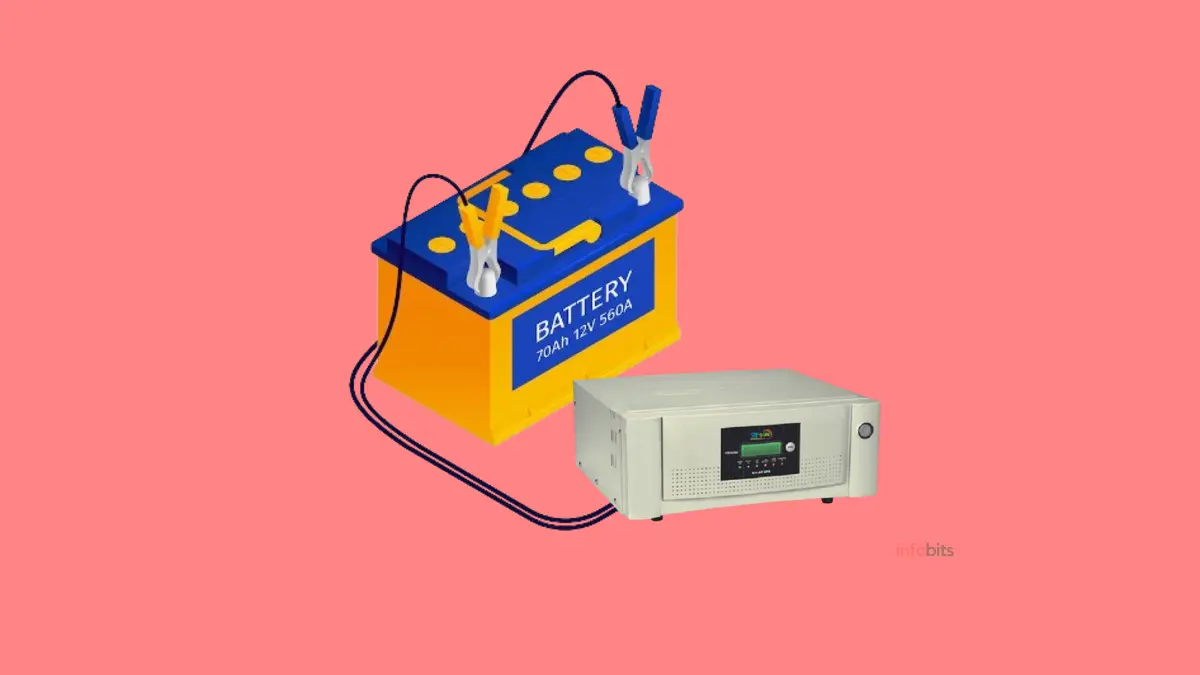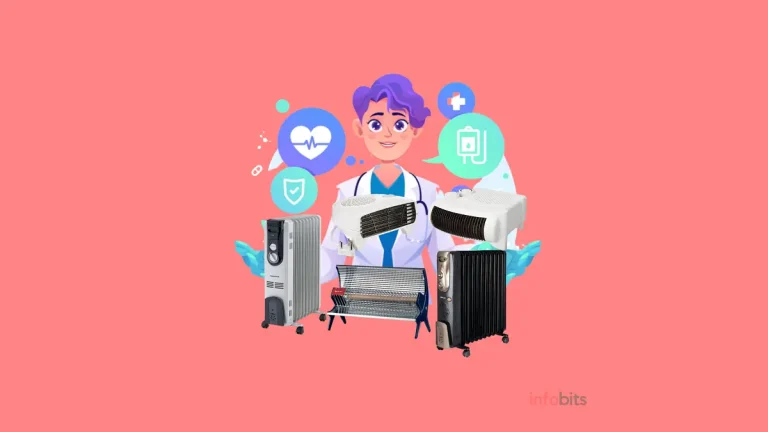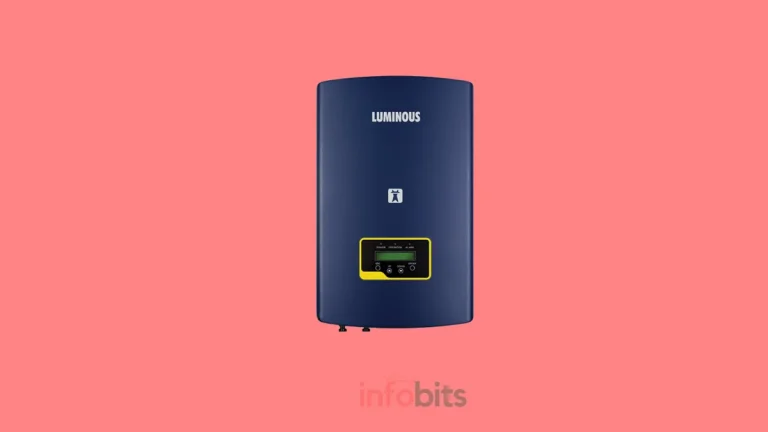Lithium Battery Advantages in Inverter and UPS Systems
Lithium batteries have transformed the world of energy storage, providing several advantages in a variety of applications.
In this article, we will look at the benefits of lithium batteries in the context of inverters and UPS (Uninterruptible Power Supply) systems.
Understanding the advantages of lithium batteries in inverters and UPS systems is critical for companies and people, as it paves the way for dependable power backup, continuous operations, and efficient use of energy resources.
Let’s look at the extraordinary benefits of lithium batteries for these important uses.
1. Introduction to Lithium Batteries
1.1 What are Lithium Batteries?
Lithium batteries are rechargeable batteries with lithium as an active component in the electrodes.
They are used in a variety of sectors because of their greater energy density, longer lifespan, and improved performance when compared to ordinary batteries.
1.2 Types of Lithium Batteries
There are several types of lithium batteries available: lithium-ion (Li-ion), lithium iron phosphate (LiFePO4), and lithium polymer (LiPo).
Each kind has specific characteristics and advantages that make it suited for a variety of applications.
2. Understanding Inverters and UPS Systems
2.1 Inverters: Function and Importance
Inverters are electronic devices that convert direct current (DC) to alternating current (AC) electricity.
They are essential for a variety of applications, including solar power systems, cars, and backup power solutions. Inverters are necessary for transforming battery energy into useful electricity.
2.2 UPS Systems: Function and Importance
When the primary power source fails, uninterruptible power supply (UPS) systems offer backup power.
They guarantee that vital devices receive uninterrupted power, preventing data loss and equipment damage. UPS systems are frequently utilized in data centres, hospitals, and other businesses that require continuous power supply.
3. Lithium Battery Advantages
3.1 Enhanced Energy Efficiency with Lithium Batteries
a) How Lithium Batteries Improve Energy Efficiency
Lithium batteries have a huge energy efficiency advantage over regular batteries. They have reduced self-discharge rates, which allows them to store energy for longer periods.
Furthermore, they have improved charge and discharge efficiency, resulting in less energy waste during power conversion.
When these characteristics are combined in inverters and UPS systems, they lead to increased overall energy efficiency.
b) Comparison with Other Battery Technologies
Lithium batteries offer a higher energy density than other battery technologies, such as lead-acid batteries, allowing them to store more energy in smaller, lighter packaging.
This improved energy density leads to better power output and longer runtimes for inverters and UPS systems. It also minimises the overall space needed for battery storage.
3.2 Compact and Lightweight Design
a) Lithium Batteries vs. Traditional Batteries: Size and Weight Comparison
Lithium batteries are lighter and smaller than older battery technology.
Their increased energy density enables the same amount of power to be stored in a smaller, lighter form.
This tiny size makes them perfect for applications that demand both space economy and mobility.
b) Benefits of Compact Design in Inverters and UPS Systems
Lithium batteries’ small and lightweight design offers various advantages when utilized in inverters and UPS systems.
It makes installation and maintenance easier, decreases the physical footprint of power backup systems, and increases system design flexibility.
Furthermore, the lower weight facilitates the shipping and handling of these devices more easily.
3.3 Improved Performance and Longer Lifespan
Inverters and UPS systems play an important role in delivering backup power during outages and using lithium batteries has various performance and longevity benefits.
a) Higher Energy Density and Power Output
One of the primary benefits of lithium batteries in inverters and UPS systems is their high energy density.
This implies they can store more energy in a smaller, lighter form than existing battery technologies.
Therefore, these batteries can generate more power, allowing inverters and UPS systems to operate more efficiently and reliably.
b) Longer Lifespan and Reduced Maintenance
Lithium batteries often have a longer lifespan than other battery technologies. They can endure more charge-discharge cycles without losing substantial capacity, making them excellent for high-volume applications.
Furthermore, lithium batteries have lower self-discharge rates, which means they can keep their charge for longer periods, decreasing the need for frequent maintenance and recharging.
3.4 Faster Charging and Discharging Capabilities
Another advantage of lithium batteries in inverter and UPS applications is their ability to charge and discharge at higher rates.
a) Rapid Charging Benefits in Inverters and UPS Systems
Lithium batteries offer high charging efficiency, allowing them to be charged quickly, typically in a fraction of the time compared to regular batteries.
This is especially handy in situations requiring a speedy recharge, such as power interruptions or a restricted time frame for recharging.
Related: How to Charge the Inverter/UPS Battery Efficiently?
b) Efficient Discharging for Continuous Power Supply
Lithium batteries also excel at efficient discharge, providing a steady and dependable power source for inverters and UPS systems.
Their capacity to discharge power at a consistent rate assures a steady flow of energy, preventing disruptions and potential harm to sensitive equipment.
3.5 Enhanced Safety Features
Safety is always a major consideration when it comes to batteries, and lithium batteries have more safety measures than other battery kinds.
a) Lithium Battery Safety Measures
Lithium batteries provide built-in safety systems that prevent overcharging, over-discharging, and short circuits.
These safety precautions reduce the likelihood of accidents such as fires or explosions, resulting in a safer working environment for inverters and UPS systems.
b) Protection against Overheating and Overcharging
Lithium batteries were developed to be more resistant to overheating and overcharging than other battery types.
This minimizes the chance of major failures and increases the battery’s total lifespan, offering added peace of mind and dependability in inverter and UPS applications.
3.6 Cost-Effectiveness and Environmental Sustainability
Aside from their superior performance and safety, lithium batteries are cost-effective and environmentally friendly.
a) Long-Term Cost Savings with Lithium Batteries
While lithium batteries have a greater initial cost than other battery types, their longer lifespan and lower maintenance needs result in considerable long-term cost benefits.
These batteries require fewer replacements and have reduced running costs, making them an economical solution for inverter and UPS systems.
b) Environmental Benefits of Lithium Batteries
Lithium batteries are more environmentally friendly than conventional battery technology.
They contain fewer hazardous compounds and heavy metals, which reduces the danger of soil and water contamination.
Furthermore, lithium batteries’ extended lifespan and reusable components make them a sustainable option, reducing the environmental effect of frequent battery removal.
4. Summary
Finally, using lithium batteries in inverter and UPS systems improves performance, extends longevity, allows for quicker charging and discharging, enhances safety features, is cost-effective, and is environmentally friendly.
These benefits make lithium batteries an excellent and dependable option for backup power solutions. Overall, the benefits of lithium batteries in inverters and UPS systems are evident.
Embracing the potential of lithium batteries in inverters and UPS systems not only assures dependable backup power but also contributes to a more environmentally friendly future.
Inverters and UPS systems that use lithium batteries can benefit from increased energy efficiency, higher power output, longer runtime, and a more compact design.
These qualities make lithium batteries an excellent alternative for a variety of applications requiring dependable and efficient power backup solutions.
5. Frequently Asked Questions
Yes, lithium batteries used in inverters and UPS systems are designed with extensive safety measures to prevent overheating, overcharging, and other possible hazards. These safety measures enable dependable and secure power backup without affecting overall system safety.
Lithium batteries have better energy density and lower internal resistance than older battery technologies. This improves energy efficiency by reducing energy loss while charging, discharging, and storing, increasing the use of stored energy.
Yes, lithium batteries are gradually replacing conventional batteries due to their greater performance, longer lifespan, and faster charging times. For best operation, compatibility and adequate integration with the specified inverter or UPS system are required.
While lithium batteries have a greater starting cost than conventional batteries, their longer lifespan and lower maintenance needs make them more cost-effective in the long term. Furthermore, their energy efficiency and faster charging capabilities lead to better use of energy resources, potentially saving money over time.
We hope you are interested in our articles and consider following our Facebook, Instagram, and Twitter pages for regular updates.
Subscribe to our free newsletter to get similar articles and regular updates directly in your Email Inbox.
Also, share this article with your friends and relatives. Bookmark this page for future reference.







